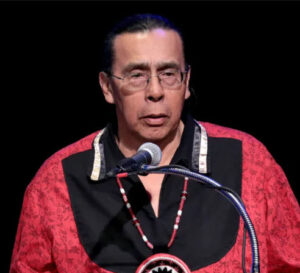
On December 19, 2012, the full 13 judge US Court of Appeals denied the Onondaga Nation’s request to re-hear the October 19th denial by a 3 judge panel of the same court to overrule the September 2010 dismissal of the 2005 Land Rights Case. The Appellate Court denied the Nation’s request without explanation.
On Columbus Day, 2012, the Onondaga Nation had made an argument to the appellate court in New York City to overrule the District Court’s dismissal. Although the three judge panel appeared to listen to the nation’s arguments and rationale to re-open the 2005 Land Rights case, the argument was not able to sway the panel in the Nation’s favor.
“The problem we are encountering is the 2005 Sherrill decision against the Oneida Nation,” said lead counsel Joe Heath. “This decision by the Supreme Court introduced ‘new’ law that only applies to Indigenous land rights cases. It is extremely difficult to argue against it, but will continue to do so.”
For many years, the Onondaga Nation and the State of New York were in government to government negotiations to resolve many issues between the two governments, including the land rights issue. In 1997 the State suddenly halted negotiations stating it could not continue unless the Onondaga Nation filed a case against them. On March 11, 2005, the Onondaga Nation filed its Land Rights Case against the state of New York and the polluters of the sacred Onondaga Lake. The Case called for a healing between the State of New York and the Onondaga Nation to move to create a healthy environment for our future generations.
Just three weeks later, On March 28, 2005, the Supreme Court handed down its Sherrill decision against the Oneida Nation. The case settled a dispute between the County and the Oneida Nation over jurisdiction of lands re-claimed by the Oneidas. This ruling not only adversely affected the Oneida case, but the Mohawk, Cayuga, and Onondaga Nation cases as well. Because of the Supreme Court’s Sherrill decision, the Onondaga Nation has never had a chance to prove facts behind its Land Rights Case in any court.
 “It is very interesting what is happening to our Land Rights Case,” said Chief Sid Hill. “The United States claims that their court system is fair and just. It is hard to believe that when they will not even allow our case in court. They must be very afraid of the history between the Onondagas and NYS; and what they might learn.”
“It is very interesting what is happening to our Land Rights Case,” said Chief Sid Hill. “The United States claims that their court system is fair and just. It is hard to believe that when they will not even allow our case in court. They must be very afraid of the history between the Onondagas and NYS; and what they might learn.”
In fact the Onondaga Land Rights Case is embedded with the history of New York State and the United States as it pertains to the Haudenosaunee (Six Nations) and the Onondaga Nation. The case is a history lesson to how New York State deliberately ignored federal laws aimed to protect Native nations in order to illegally claim possession of Onondaga lands.
“This case is about more than arguing treaties or eviction of our lands,” said Jake Edwards. “This case asks for an acknowledgement that the State of New York broke Federal law. We hope that the State of New York would show its citizens that they too are law abiding. I am sure New York would want its citizens to abide by the laws they pass. We are asking the Federal Court to hold the State of New York to the same criteria it asks of its own citizens.”
Next for the Onondaga Land Rights case is a request by the Onondaga Nation to the United States Supreme Court to re-open the case.
“Since the Appellate Court denied our request,” stated attorney Joe Heath. “Then the last possibility for the Onondaga Nation to find justice in the United States court system is to ask the Supreme Court to review the Circuit’s ruling in a certiorari Petition.”
For that to happen, the Supreme Court must decide that their 2005 Sherrill decision against the Oneida Nation does not apply to the Onondaga Nation.
“We will see if the United States Court System is fair or just,” added Chief Sidney Hill. “We are watching to see if the Court will cavalierly toss our case aside. Then we will know.”
